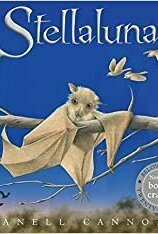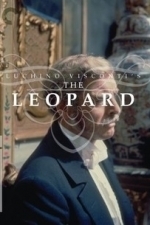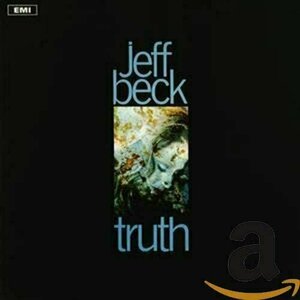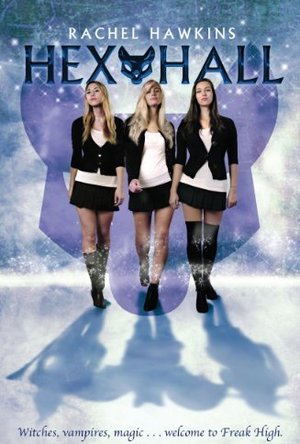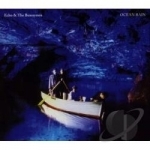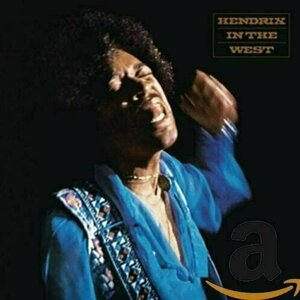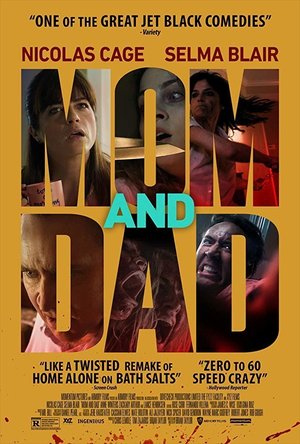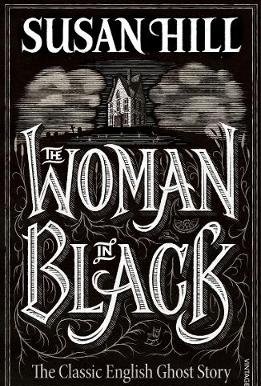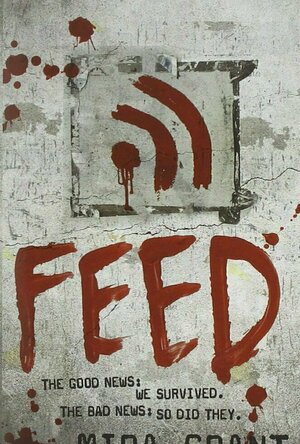Search
Search results
Adam Silvera recommended Stellaluna in Books (curated)
Christopher Hobbs recommended The Leopard (1963) in Movies (curated)
Gene Simmons recommended Truth by The Jeff Beck Group in Music (curated)
Rachel King (13 KP) rated Hex Hall (Hex Hall, #1) in Books
Feb 11, 2019
The first thing that I found curious was that the author does not begin with when Sophie first discovers who she is, but instead begins with what incident propels her to switch to the paranormal-reject-filled boarding school, Hecate Hall - also affectionately known as "Hex Hall." The incident shows the softer side of Sophie, so it is easy to predict the choices she makes throughout the rest of the book.
Hecate Hall is similar to any other high school, just with a paranormal twist. The werewolves can still talk and walk upright, so they are not considered true shapeshifters. The fairies don't have to hide their wings, can turn into balls of light for travel, communicate through mirrors, as well as many other traditions of legend - but all seem to be pretentious snobs. The witches are divided into dark and light, and Sophie is unknowingly cast as a dark witch, though she can't guess how, which puts her in the line of fire from the other three dark witches on campus, who swing from classic "mean girls" to her best friends unpredictably. Plus, what school would be complete without the resident "hottie", whom Sophie can't help but fall for, especially since fate keeps putting the two of them together. And finally, two vampires also reside at school - though they are not considered equals - Sophie's roommate, Jenna, as well as a teacher condemned into hiding, none other than Lord Byron, the poet. While Lord Byron's role turned out to be a major disappointment, Jenna seemed to be the one with all of the secrets, even as she is repeatedly blamed for the new deaths cropping up.
Sophie is easy to like, with a fantastic sense of humor and strong moral sense. The flip-flopping emotions of the cast of characters matched the average teenager well, and made for many entertaining situations. The many surprises that saturated the plot made the book engaging, and I look forward to reading about what Sophie does with her new-found information about herself in the next book, Demonglass.
Hecate Hall is similar to any other high school, just with a paranormal twist. The werewolves can still talk and walk upright, so they are not considered true shapeshifters. The fairies don't have to hide their wings, can turn into balls of light for travel, communicate through mirrors, as well as many other traditions of legend - but all seem to be pretentious snobs. The witches are divided into dark and light, and Sophie is unknowingly cast as a dark witch, though she can't guess how, which puts her in the line of fire from the other three dark witches on campus, who swing from classic "mean girls" to her best friends unpredictably. Plus, what school would be complete without the resident "hottie", whom Sophie can't help but fall for, especially since fate keeps putting the two of them together. And finally, two vampires also reside at school - though they are not considered equals - Sophie's roommate, Jenna, as well as a teacher condemned into hiding, none other than Lord Byron, the poet. While Lord Byron's role turned out to be a major disappointment, Jenna seemed to be the one with all of the secrets, even as she is repeatedly blamed for the new deaths cropping up.
Sophie is easy to like, with a fantastic sense of humor and strong moral sense. The flip-flopping emotions of the cast of characters matched the average teenager well, and made for many entertaining situations. The many surprises that saturated the plot made the book engaging, and I look forward to reading about what Sophie does with her new-found information about herself in the next book, Demonglass.
Ian McCulloch recommended Ocean Rain by Echo & The Bunnymen in Music (curated)
Cyn Armistead (14 KP) rated The Distance Travelled in Books
Mar 1, 2018
Just how this book ended up on my iTouch is something of a mystery to me, but it was there and I'd read everything else, and it was the middle of the night and I couldn't sleep, so I figured what the heck.
A few minutes later, I stopped, looked back at the title and author, and tried really hard to figure out where this book could have possibly come from, because, um, wtf? A guy is sitting in his kitchen, minding his own business, and a pig comes sailing through the window? A live pig? Right. Then he starts checking the thermostat and it is pretty clear that he must live in hell. Oh, and the pig sits down and helps itself to his cereal, sitting upright in the chair and using the spoon.
That's before things really get odd.
I have no objection to a few fnords, but I generally know what I'm getting into. I suppose that when a novel apparently puts itself onto your e-reader, you just deal with whatever happens.
So maybe I shouldn't be complaining about the fact that there isn't exactly a happy ending, because the ending isn't as unhappy as it could have been. But I LIKE happy endings. In fact, I have a thing about them, in that I tend to choose my reading with a very strong preference for them. That's one reason I'm unlikely to be reading any more Neil Gaiman (I know, I know, he's such a good author - but he's depressing as hell, too).
Let's be honest here: Savory is not Neil Gaiman, and there wasn't a really happy ending. The ending didn't wholly suck as much as it could have, but there wasn't any goodness and light. Or redemption. Or reward. No love. Just - blah.
So I don't know what else Brett Alexander Savory has written, but I probably won't be looking too hard at any of it. The book did keep me reading for about an hour and a half, though, so Savory did better than many other authors could. Kudos for that!
I know he put this novel, at least, out under a Creative Commmons license, according to the copy on my e-reader. I don't know if any of his other material is licensed that way or not, but I give him thumbs up for being part of the CC movement.
A few minutes later, I stopped, looked back at the title and author, and tried really hard to figure out where this book could have possibly come from, because, um, wtf? A guy is sitting in his kitchen, minding his own business, and a pig comes sailing through the window? A live pig? Right. Then he starts checking the thermostat and it is pretty clear that he must live in hell. Oh, and the pig sits down and helps itself to his cereal, sitting upright in the chair and using the spoon.
That's before things really get odd.
I have no objection to a few fnords, but I generally know what I'm getting into. I suppose that when a novel apparently puts itself onto your e-reader, you just deal with whatever happens.
So maybe I shouldn't be complaining about the fact that there isn't exactly a happy ending, because the ending isn't as unhappy as it could have been. But I LIKE happy endings. In fact, I have a thing about them, in that I tend to choose my reading with a very strong preference for them. That's one reason I'm unlikely to be reading any more Neil Gaiman (I know, I know, he's such a good author - but he's depressing as hell, too).
Let's be honest here: Savory is not Neil Gaiman, and there wasn't a really happy ending. The ending didn't wholly suck as much as it could have, but there wasn't any goodness and light. Or redemption. Or reward. No love. Just - blah.
So I don't know what else Brett Alexander Savory has written, but I probably won't be looking too hard at any of it. The book did keep me reading for about an hour and a half, though, so Savory did better than many other authors could. Kudos for that!
I know he put this novel, at least, out under a Creative Commmons license, according to the copy on my e-reader. I don't know if any of his other material is licensed that way or not, but I give him thumbs up for being part of the CC movement.
Mark Arm recommended Hendrix In The West by Jimi Hendrix in Music (curated)
Scott Tostik (389 KP) rated Mom and Dad (2018) in Movies
Jan 27, 2018
Nicholas Cage (2 more)
Great idea
Superb dialogue
Some damn fine fun with Cage and Blair
Contains spoilers, click to show
Two people who you should be able to count on for your safety as a child are your Mother and Father. But that doesn' ring true in this amazing little film by writer/director Brian Taylor.
The film's opening sequence shows a woman in a minivan with a baby in the backseat. The radio plays some strange static and out of nowhere she looks back to the infant and exits the vehicle. Leaving the baby and the van to meet their demise via an oncoming train.
What follows is pure genius and insanity that is topped by Nick Cage doing what Nick Cage does best. Losing it onscreen with a fever that only my he can provide.
Selma Blair holds her own as Cafe's seemingly mild mannered wife who turns on a dime and joins him in the craziness with a certain flair comparable to Cages insane bravado.
The kids, played by Anne Winters and Zachary Arthur, fight their parents with some Home Alonish antics that prove to serve them well.
No one can fully say what it is that officially makes the parents around the world turn on their kids. But it has something to do with white noise and static on televisions and radios across the planet. Parents instinct to protect their young like a bear is replaced with the feeling off ultimate anger and insanity.
In one scene, Blair is at the hospital coaching her sister through birth. The the is born and handed to the mother and a monitor goes all static filled and noisy. The sister clutches the baby tightly, beginnng to cut off the airwaves and choking the child. Blair rips the newborn from her sister in an attempt to protect her. But something driving her sister forces her to stand upright and destroy the baby. She ultimately fails and is sedated.
The best performance in this film goes hands down to Nicholas Cage. Who freaks out like only Cage can. And even though his appeaance resembles a slightly bloated version of Marilyn Manson. His ability to use his expression and booming voice to command insanity is off the charts amazing.
I recall a scene where the kids are locked in the basement trying to escape their folks. And Blair and Cage are looking for a way to break down the door. Nicholas bangs on the door, shaking and screaming a line i will never forget "Your motherfucking Mother said to open this goddamn door, Motherfuckers!!!! Youre going to open this motherfucking door!!!!". Cage goes one way Blair goes another... she gets a reciprocating saw and brings it to the door. Her line, while simple, is unforgettable. "It's called a Saws all because it saws all,".
She begins hacking and at the door as Cage is upstairs looking for his gun... he hears shots and runs downstairs, finding Blair sitting on the floor nursing a fresh gunshot to the arm. He freaks out and explains the gun to his wife who quotes some stats about kids hurting themselves and others with handguns. Irony at its finest.
All in all, this movie never gets boring after the parents begin to try and kill their kids. It's only better when Cages character Brent's folks show up and attempt to kill him. Lance Henricksons performance as the father is extreme and awesome.
Watch this movie if you have a spare 90 minutes, i promise you it will motherfucking not disappoint, Motherfuckers:)
The film's opening sequence shows a woman in a minivan with a baby in the backseat. The radio plays some strange static and out of nowhere she looks back to the infant and exits the vehicle. Leaving the baby and the van to meet their demise via an oncoming train.
What follows is pure genius and insanity that is topped by Nick Cage doing what Nick Cage does best. Losing it onscreen with a fever that only my he can provide.
Selma Blair holds her own as Cafe's seemingly mild mannered wife who turns on a dime and joins him in the craziness with a certain flair comparable to Cages insane bravado.
The kids, played by Anne Winters and Zachary Arthur, fight their parents with some Home Alonish antics that prove to serve them well.
No one can fully say what it is that officially makes the parents around the world turn on their kids. But it has something to do with white noise and static on televisions and radios across the planet. Parents instinct to protect their young like a bear is replaced with the feeling off ultimate anger and insanity.
In one scene, Blair is at the hospital coaching her sister through birth. The the is born and handed to the mother and a monitor goes all static filled and noisy. The sister clutches the baby tightly, beginnng to cut off the airwaves and choking the child. Blair rips the newborn from her sister in an attempt to protect her. But something driving her sister forces her to stand upright and destroy the baby. She ultimately fails and is sedated.
The best performance in this film goes hands down to Nicholas Cage. Who freaks out like only Cage can. And even though his appeaance resembles a slightly bloated version of Marilyn Manson. His ability to use his expression and booming voice to command insanity is off the charts amazing.
I recall a scene where the kids are locked in the basement trying to escape their folks. And Blair and Cage are looking for a way to break down the door. Nicholas bangs on the door, shaking and screaming a line i will never forget "Your motherfucking Mother said to open this goddamn door, Motherfuckers!!!! Youre going to open this motherfucking door!!!!". Cage goes one way Blair goes another... she gets a reciprocating saw and brings it to the door. Her line, while simple, is unforgettable. "It's called a Saws all because it saws all,".
She begins hacking and at the door as Cage is upstairs looking for his gun... he hears shots and runs downstairs, finding Blair sitting on the floor nursing a fresh gunshot to the arm. He freaks out and explains the gun to his wife who quotes some stats about kids hurting themselves and others with handguns. Irony at its finest.
All in all, this movie never gets boring after the parents begin to try and kill their kids. It's only better when Cages character Brent's folks show up and attempt to kill him. Lance Henricksons performance as the father is extreme and awesome.
Watch this movie if you have a spare 90 minutes, i promise you it will motherfucking not disappoint, Motherfuckers:)
Hadley (567 KP) rated The Woman in Black in Books
Jan 1, 2020
Great paranormal aspect (1 more)
Good narrative
Overuse of some words (1 more)
Some scenes that could have been written better
In Susan Hill's novel, "The Woman in Black," she puts a small twist on an urban legend that is widely known to most - - - 'the lady in white,' which if you haven't heard of it, it's a spectral woman that is seen throughout the world, dressed all in white, only to show up in places of tragic events. This novel only has one main character, Arthur Kipps, a 23-year-old young man who is a lawyer in late 1800's England. He usually takes care of the conveyance of property leases, but one day, when his boss, Mr. Bentley, hands over a case and responsibility of finding a newly deceased's Last Will and Testament for their lawfirm, Kipp graciously accepts the new adventure without knowing that what is ahead will haunt him the rest of his life.
As Kipp soon finds out after traveling to the town just outside of the deceased's home, there is more to this woman, Alice Drablow, than just an old hermit- - - anytime her name is mentioned, people fall silent; the same goes for her home: Eel Marsh House. Kipp doesn't allow this to put him off from doing his job, but when he finds out about the marshes the house lives on, he is told that there are only certain times of the day that he can cross before the marshes become too flooded to cross. 'The Woman in Black' has spine-chilling moments and great descriptive details to make this a quick ghost story to be enjoyed.
Before Kipp heads off to the Eel Marsh House, he must attend Mrs. Drablow's funeral; he is accompanied by a man named Mr. Jerome, an agent that had dealt with Mrs. Drablow's property and land business while she was alive. While at the church, only one other person turns up for the funeral: a woman dressed all in black. Kipp takes note that this woman does not look well and, being the gentleman that he is, tells himself that he will offer his arm to her for stability after the funeral, but when they are leaving the church yard, the woman is suddenly gone. Kipp brings this up to Mr. Jerome, but he merely states that they were the only ones at the funeral.
The best scene to come is Kipp's first night at Eel Marsh House, where he experiences his first real scare in the ruins close by the house that is a dilapidated cemetery. " Suddenly conscious of the cold and the extreme bleakness and eeriness of the spot and of the gathering dusk of the November afternoon, and not wanting my spirits to become so depressed that I might begin to be affected by all sorts of morbid fancies, I was about to leave, and walk briskly back to the house, where I intended to switch on a good many lights and even light a small fire if it were possible, before beginning my preliminary work on Mrs. Drablow's papers. But, as I turned away, I glanced once again round the burial ground and then I saw again the woman with the wasted face, who had been at Mrs. Drablow's funeral. She was at the far end of the plot, close to one of the few upright headstones, and she wore the same clothing and bonnet, but it seemed to have slipped back so that I could make out her face a little more clearly. "
Over the entire course of the book, Kipp only visits the house one more time after this incident. The book has a good story, but it isn't flawless; first, there is the overuse of the word 'estuary,' which is practically used on every page whenever Kipp is at the Eel Marsh House or discussing it. It gets very tiresome. There is also instances of bad writing, where I feel that Hill could have delivered the scenes better than she did: Kipp changing his mind the very next sentence (if you read my reviews pretty regularly, you will realize that I can't stand it when a character contradicts themselves within a page or two), and then Kipp saying he can't do something, than directly after, does it. When you read this book, you will realize that Kipp is not the type of character that would change his mind on a whim.
Kipp is also an interesting character for a male set in this era. Most men in the late 1800's were stoic and refused to show an ounce of emotion in public, but Kipp is not afraid to have other men see him fall apart, and he is also very considerate of other people. There isn't much of a backstory on where Kipp came from or how his parents raised him, but it wasn't really needed for this story. Yet, we meet Kipp's step-children and his first and second wife, without too much of a story about them, so when certain things happen (to not give a spoiler), it doesn't really leave an impression.
There isn't much I can say that wouldn't give away what makes this story enjoyable to read. Overall, this is a good and quick ghost story that may cause shivers for some, but even if it doesn't, the Woman in Black is a must-read for lovers of the paranormal. To me, this seems like a good book to read while traveling because it's easy to pick up and set down without getting lost as to what was going on.
As Kipp soon finds out after traveling to the town just outside of the deceased's home, there is more to this woman, Alice Drablow, than just an old hermit- - - anytime her name is mentioned, people fall silent; the same goes for her home: Eel Marsh House. Kipp doesn't allow this to put him off from doing his job, but when he finds out about the marshes the house lives on, he is told that there are only certain times of the day that he can cross before the marshes become too flooded to cross. 'The Woman in Black' has spine-chilling moments and great descriptive details to make this a quick ghost story to be enjoyed.
Before Kipp heads off to the Eel Marsh House, he must attend Mrs. Drablow's funeral; he is accompanied by a man named Mr. Jerome, an agent that had dealt with Mrs. Drablow's property and land business while she was alive. While at the church, only one other person turns up for the funeral: a woman dressed all in black. Kipp takes note that this woman does not look well and, being the gentleman that he is, tells himself that he will offer his arm to her for stability after the funeral, but when they are leaving the church yard, the woman is suddenly gone. Kipp brings this up to Mr. Jerome, but he merely states that they were the only ones at the funeral.
The best scene to come is Kipp's first night at Eel Marsh House, where he experiences his first real scare in the ruins close by the house that is a dilapidated cemetery. " Suddenly conscious of the cold and the extreme bleakness and eeriness of the spot and of the gathering dusk of the November afternoon, and not wanting my spirits to become so depressed that I might begin to be affected by all sorts of morbid fancies, I was about to leave, and walk briskly back to the house, where I intended to switch on a good many lights and even light a small fire if it were possible, before beginning my preliminary work on Mrs. Drablow's papers. But, as I turned away, I glanced once again round the burial ground and then I saw again the woman with the wasted face, who had been at Mrs. Drablow's funeral. She was at the far end of the plot, close to one of the few upright headstones, and she wore the same clothing and bonnet, but it seemed to have slipped back so that I could make out her face a little more clearly. "
Over the entire course of the book, Kipp only visits the house one more time after this incident. The book has a good story, but it isn't flawless; first, there is the overuse of the word 'estuary,' which is practically used on every page whenever Kipp is at the Eel Marsh House or discussing it. It gets very tiresome. There is also instances of bad writing, where I feel that Hill could have delivered the scenes better than she did: Kipp changing his mind the very next sentence (if you read my reviews pretty regularly, you will realize that I can't stand it when a character contradicts themselves within a page or two), and then Kipp saying he can't do something, than directly after, does it. When you read this book, you will realize that Kipp is not the type of character that would change his mind on a whim.
Kipp is also an interesting character for a male set in this era. Most men in the late 1800's were stoic and refused to show an ounce of emotion in public, but Kipp is not afraid to have other men see him fall apart, and he is also very considerate of other people. There isn't much of a backstory on where Kipp came from or how his parents raised him, but it wasn't really needed for this story. Yet, we meet Kipp's step-children and his first and second wife, without too much of a story about them, so when certain things happen (to not give a spoiler), it doesn't really leave an impression.
There isn't much I can say that wouldn't give away what makes this story enjoyable to read. Overall, this is a good and quick ghost story that may cause shivers for some, but even if it doesn't, the Woman in Black is a must-read for lovers of the paranormal. To me, this seems like a good book to read while traveling because it's easy to pick up and set down without getting lost as to what was going on.
Writing (3 more)
Characters
Inconsistencies
Not a horror book, as marketed
What if a powerful virus was released in the air? What if you had to be tested for it every time you tried to walk into a building? Does this sound a little familiar? What if I told you this scenario was written about back in 2010?
In her novel Feed, writer Mira Grant gives readers this very scenario of an airborne, blood transferred virus; something that seems very familiar in today's environment and day-to-day living- - - just minus the zombies.
Grant started out as an urban fantasy writer known as Seanan McGuire, with her first full-length novel being Rosemary and Rue. She received the 2010 John W. Campbell Award for Best New Writer, as well as many other awards for her work in fiction. There are four books in the Newsflash series (Feed being the first of these).
We meet our main characters, Georgia and Shaun, while they're out in the 'field' filming some zombies for their blog. Shaun is the more careless one, as we witness him poking at zombies with his hockey stick. The two suddenly have to leave when the zombies become a pack. This is where it gets a little strange- - -Georgia explains to the readers that when zombies are in a pack, they become stronger and somehow smarter, but throughout the rest of the book, it's never really explained how this happens.
In this world, blogging and your view count determines your quality of life. Georgia and Shaun have spent years making their blog- - - After the End Times- - - into a popular blog. Every blogger's dream is to be picked to follow the campaign trail of any upcoming politician, and that is exactly what happens to our main characters. Unfortunately, this is when the book turns into a political thriller- - - this happens within the first fifty pages. Zombies end up taking a backseat from here-on-out.
We still get to learn about the virus (Kellis-Amberlee) throughout the book. We're told that any animal that weighs more than 40 pounds is capable of having the virus, and that some people are even born with a dormant-type of the virus inside of them, but this is also never explained in the entire story, at least in book one. Georgia makes it quite clear throughout the novel that she is completely against anyone owning pets that weigh over 40 pounds, but this is due-to her family having lost their younger son to a pet that went viral. This becomes extremely repetitive. Every time that an animal is brought up or seen, Georgia has to retell her stance on owning pets, when once or twice was enough to let the readers know where she stands on the subject.
There are moments of zombie attacks- - - such as after a political rally in a small town where Georgia and her crew are following Senator Ryman on his race to become President, when bodyguards are attacked by a small group of the undead, and Georgia and Shaun become cornered by a few of them- - - these scenes read as if to just keep the zombie trope going, not to actually make the story better. Grant continually repeats herself throughout the book, and because of this, the story didn't have to be as long as it is. Such as with these few zombie attacks, the reader never feels much danger for the characters. And I found that the characters turn out to just not be that likable.
One such character that had potential is Buffy; the backbone of the After the End Times blog. Scenes that were meant to make the reader care for her fell short. Unlike scenes with Georgia and Shaun, including the bond between them, is not felt with Buffy's scenes; she merely seems like a filler character to make certain parts of the story make sense by constantly disappearing and reappearing wherever need be.
Georgia does have an interesting quirk in the book. She harbors the dormant Kellis-Amberlee virus, which has effected her eyes. She can't be in bright lights because they give her blinding headaches, so she wears sunglasses nearly everywhere: " I collapsed onto our bed at the local four-star hotel a little after dawn, my aching eyes already squeezed shut. Shaun was a bit steadier on his feet and he stayed upright long enough to make sure the room's blackout curtains were drawn. "
The technical side of the story - - - the computer world and the electronic usage- - - in Feed is done pretty well. It's like the movie Nightcrawler meets 28 Days Later, but with a lot less zombies. We get to see the seedy underbelly of journalism- - - where bloggers are willing to do anything to get their view count high. Readers also get to witness how life is like living in a world held hostage by a virus - - -something that is very relatable today.
Georgia constantly reminds readers that she doesn't care about other people, and that Shaun is the only person she cares for- - - and, of course, the view count. She continually blames her lack of empathy on their adoptive parents, stating that they only took them in for the their own blog view counts. Oddly after such information, Shaun doesn't seem to be the immature one in the duo.
I haven't read the other three books, one which is a republishing of Feed, but from a different point-of-view. This story was disguised as a horror novel, but just ended up being a political thriller with some zombies thrown in for a much wider reading audience. The book skims over what life would be like after a devastating virus takes over, but focuses on what politics would be like. I can't recommend Feed as a horror novel; the tagline is also misleading: " 'The good news: we survived. The bad news: so did they. " Unless Grant was talking about politicians....
I didn't give the story a low rating because it wasn't exactly a horror book, but instead for these reasons: throughout the story, Grant repeats a lot of information that was explained earlier in the book (and only needed to be explained once); she also had inconsistencies throughout, sometimes even in the very next sentence. Adding things that needed to be explained which weren't, and the afterthoughts that broke up the flow of the story, I just couldn't enjoy it. But, if you like political thrillers, then you might like this one. I won't be continuing this series.
In her novel Feed, writer Mira Grant gives readers this very scenario of an airborne, blood transferred virus; something that seems very familiar in today's environment and day-to-day living- - - just minus the zombies.
Grant started out as an urban fantasy writer known as Seanan McGuire, with her first full-length novel being Rosemary and Rue. She received the 2010 John W. Campbell Award for Best New Writer, as well as many other awards for her work in fiction. There are four books in the Newsflash series (Feed being the first of these).
We meet our main characters, Georgia and Shaun, while they're out in the 'field' filming some zombies for their blog. Shaun is the more careless one, as we witness him poking at zombies with his hockey stick. The two suddenly have to leave when the zombies become a pack. This is where it gets a little strange- - -Georgia explains to the readers that when zombies are in a pack, they become stronger and somehow smarter, but throughout the rest of the book, it's never really explained how this happens.
In this world, blogging and your view count determines your quality of life. Georgia and Shaun have spent years making their blog- - - After the End Times- - - into a popular blog. Every blogger's dream is to be picked to follow the campaign trail of any upcoming politician, and that is exactly what happens to our main characters. Unfortunately, this is when the book turns into a political thriller- - - this happens within the first fifty pages. Zombies end up taking a backseat from here-on-out.
We still get to learn about the virus (Kellis-Amberlee) throughout the book. We're told that any animal that weighs more than 40 pounds is capable of having the virus, and that some people are even born with a dormant-type of the virus inside of them, but this is also never explained in the entire story, at least in book one. Georgia makes it quite clear throughout the novel that she is completely against anyone owning pets that weigh over 40 pounds, but this is due-to her family having lost their younger son to a pet that went viral. This becomes extremely repetitive. Every time that an animal is brought up or seen, Georgia has to retell her stance on owning pets, when once or twice was enough to let the readers know where she stands on the subject.
There are moments of zombie attacks- - - such as after a political rally in a small town where Georgia and her crew are following Senator Ryman on his race to become President, when bodyguards are attacked by a small group of the undead, and Georgia and Shaun become cornered by a few of them- - - these scenes read as if to just keep the zombie trope going, not to actually make the story better. Grant continually repeats herself throughout the book, and because of this, the story didn't have to be as long as it is. Such as with these few zombie attacks, the reader never feels much danger for the characters. And I found that the characters turn out to just not be that likable.
One such character that had potential is Buffy; the backbone of the After the End Times blog. Scenes that were meant to make the reader care for her fell short. Unlike scenes with Georgia and Shaun, including the bond between them, is not felt with Buffy's scenes; she merely seems like a filler character to make certain parts of the story make sense by constantly disappearing and reappearing wherever need be.
Georgia does have an interesting quirk in the book. She harbors the dormant Kellis-Amberlee virus, which has effected her eyes. She can't be in bright lights because they give her blinding headaches, so she wears sunglasses nearly everywhere: " I collapsed onto our bed at the local four-star hotel a little after dawn, my aching eyes already squeezed shut. Shaun was a bit steadier on his feet and he stayed upright long enough to make sure the room's blackout curtains were drawn. "
The technical side of the story - - - the computer world and the electronic usage- - - in Feed is done pretty well. It's like the movie Nightcrawler meets 28 Days Later, but with a lot less zombies. We get to see the seedy underbelly of journalism- - - where bloggers are willing to do anything to get their view count high. Readers also get to witness how life is like living in a world held hostage by a virus - - -something that is very relatable today.
Georgia constantly reminds readers that she doesn't care about other people, and that Shaun is the only person she cares for- - - and, of course, the view count. She continually blames her lack of empathy on their adoptive parents, stating that they only took them in for the their own blog view counts. Oddly after such information, Shaun doesn't seem to be the immature one in the duo.
I haven't read the other three books, one which is a republishing of Feed, but from a different point-of-view. This story was disguised as a horror novel, but just ended up being a political thriller with some zombies thrown in for a much wider reading audience. The book skims over what life would be like after a devastating virus takes over, but focuses on what politics would be like. I can't recommend Feed as a horror novel; the tagline is also misleading: " 'The good news: we survived. The bad news: so did they. " Unless Grant was talking about politicians....
I didn't give the story a low rating because it wasn't exactly a horror book, but instead for these reasons: throughout the story, Grant repeats a lot of information that was explained earlier in the book (and only needed to be explained once); she also had inconsistencies throughout, sometimes even in the very next sentence. Adding things that needed to be explained which weren't, and the afterthoughts that broke up the flow of the story, I just couldn't enjoy it. But, if you like political thrillers, then you might like this one. I won't be continuing this series.
